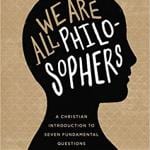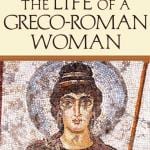Joshua D. Chatraw
Telling a Better Story: How to Talk About God in a Sceptical Age
Grand Rapids: Zondervan, 2020.
Available at HarperCollins and Koorong
By Laura Thierry
I do not believe it would be an exaggeration to say that, in the majority of Western local church contexts, the topic of evangelism—of explaining one’s faith in an increasingly secular world—is more likely to be met with apprehension than enthusiasm. Christians who truly love the Lord Jesus and sincerely long to share the hope within them nonetheless find it anything but simple to engage their secular friends, neighbours, colleagues, and family in conversations about faith. For some reason the art of rich, beneficial, and lifegiving conversations about faith within our increasingly secular Western world is simply not simple. And this reality leaves many of us bewildered to the point of paralysis. In such a state we find ourselves deeply in need of the gifts of those who can read the signs of the times and provide a basic map of the world we’re seeking to travail.
One such means of grace comes in the form of Joshua D. Chatraw’s excellent new book, Telling a Better Story: How to Talk About God in a Skeptical Age. This engaging work on apologetics is beneficial for those in the above-mentioned quandary for at least three reasons.
Firstly, while apologetics in the past has often functioned on addressing a person’s reason, even to the exclusion of all else, Chatraw builds upon the work of Christian philosophers like Charles Taylor and James K. A. Smith in seeing humans fundamentally as storied animals. This approach brings forth his “inside out” model of apologetics—one that first seeks to hear a person’s story on its own grounds, to truly enter into and understand their story (including not just their rationality, but the reality of their whole selves), then to question their story, and finally to ask them to enter into the Christian story to see where and how it both affirms parts of their story, challenges others, and, ultimately offers a better story.
Secondly, Chatraw, as he notes in the first chapter, understands the need, not just for these questions to be answered for those outside the church, but perhaps just as fundamentally for those within the church. In recognizing the power of the secular story, and that it is the air that all who live in a secular world breathe, Christians need to see and understand why, both logically, personally, and aesthetically, the Christian story truly is a more humane, loving, and truthful story than that offered by secularism.
Finally, Chatraw understands throughout that just as important as having right answers is being the right kind of person. Virtue is an integral part of apologetics in his method. This comes through clearly in the winsomeness, patience, respect, and genuine care for persons made in God’s image with which he writes and reasons.
Chatraw is incredibly well read, and draws from a very rich array of strong academic sources. His rigor in intentionally belonging to these larger conversations makes this book a useful text for apologetic classes. And yet, it remains particually well suited for those within the life of the church—those seeking to love their friends, neighbours and colleagues by deeply understanding the stories in which they live while sharing with them the better story of the gospel.
Laura Thierry a PhD candidate at Ridley College, researching medieval hagiography, Christology, and theology of the body.












